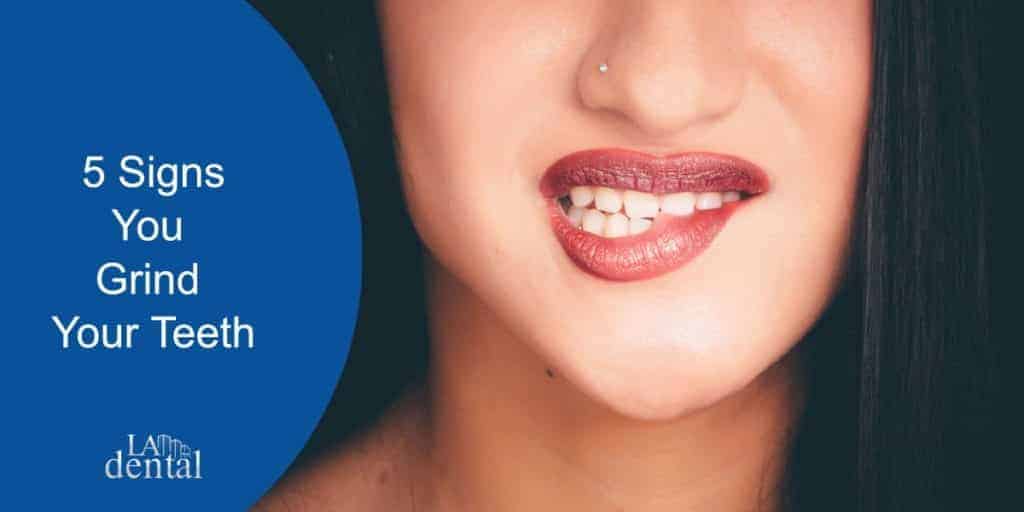Many people wonder if they talk in their sleep, but did you know that it’s also possible to grind your teeth at night? Tooth grinding, which is also known as bruxism, is a common condition that involves the grinding, gnashing, or clenching of your teeth while sleeping. You can also grind your teeth while you’re awake, but if you want to know if you do it in your sleep, here are 5 common signs.
1. Your Partner Hears You
The easiest way to find out if you’re a nocturnal teeth grinder is to receive feedback from your better half. Does your partner complain about intermittent grinding sounds coming from you in the middle of the night? Bruxism can create sounds that can disturb your partner’s sleep.
However, you should keep in mind that only severe cases of teeth grinding will produce noises loud enough to disturb people sleeping in the same room as you. Sometimes, mild to moderate cases can go undetected during the night, but you will experience other side effects that can give you clues.
2. You Feel Pain
Grinding your teeth often results in painful side effects that occur in the head and jaw area. Here are some examples of what you can experience:
- Soreness in your jaw, neck, or face
- Sensitive teeth
- Toothaches
- Dull headaches that originate from your temples
- Rawness from chewing the inside of your cheek
- Earaches
If you’re experiencing isolated cases of these symptoms, they may be unrelated to tooth grinding. However, if you’re feeling a combination of these painful symptoms, the signs may be pointing to bruxism. However, the only way to truly know if you’re grinding your teeth is to get a qualified physician to examine your mouth and jaw.
3. Interrupted Sleep
The act of tooth grinding can also wake you up, just like snoring can when it is loud enough. If you are waking up at night more often but you can’t figure out why grinding your teeth may be the cause.
4. Worn Down Teeth
Tooth grinding can wear down the enamel and flatten your teeth. Extreme and prolonged cases of bruxism can also result in loose and chipped teeth that require dental interventions.
5. You Have TMJ Complications
Severe tooth grinding can affect your temporomandibular joints (TMJs), which are located just in front of your ears. One tell-tale sign is hearing a “click” when you open or close your mouth. In severe cases, your TMJs may become inflamed and feel painful. It’s also possible to feel “full” around your ears or develop tinnitus, or ringing in your ears.
How to Treat Bruxism
If you think that you may be grinding your teeth at night, don’t worry: tooth grinding is treatable! There are both preventative measures you can take and practical medical advice you need to follow that can guide you on the road to recovery.
- Reduce your stress – Increased levels of anxiety are linked to more tooth grinding. Try to take some time out for yourself daily to exercise, eat well, and practice self-care so that you can lower the feelings of stress and anxiety that cause you to grind your teeth.
- Get a mouth guard – This is the next line of defense you should take against tooth grinding. Your dentist can give you a custom-made mouth guard that you can wear every night to prevent your teeth from wearing against each other.
- Check your medications – Sometimes bruxism is a side effect to medications, especially psychiatric ones. Before you make any adjustments to your dosage or type of medications you take, you need to see your doctor.
- Reduce your exposure to substances that promote tooth grinding – It’s possible to decrease your body’s urge to grind teeth by reducing your caffeine and alcohol intake. It’s also imperative that you quit any recreational drugs as they can promote tooth grinding.
Mouth Guards in Los Angeles
If you would like a dentist to check your teeth for the common signs of tooth grinding, schedule an appointment today.
